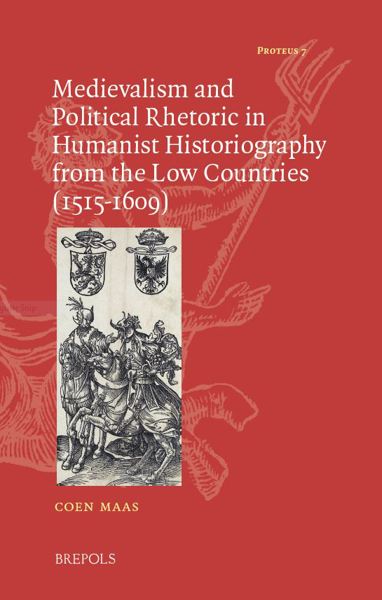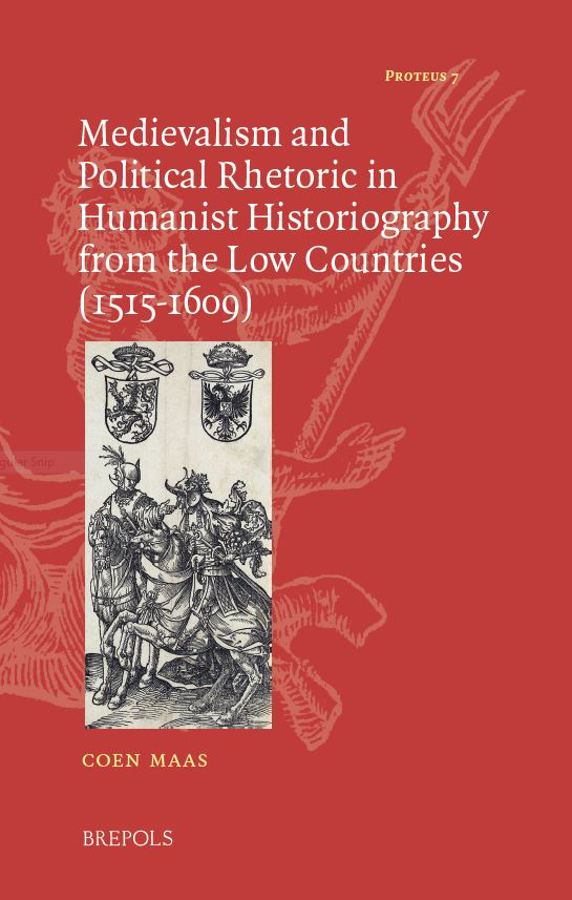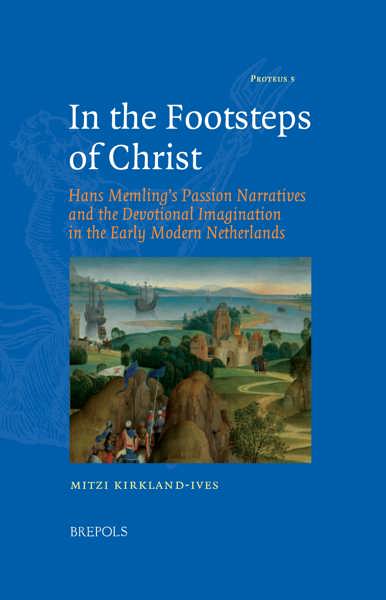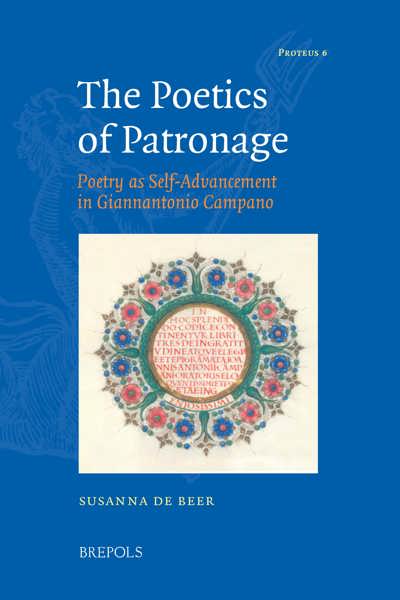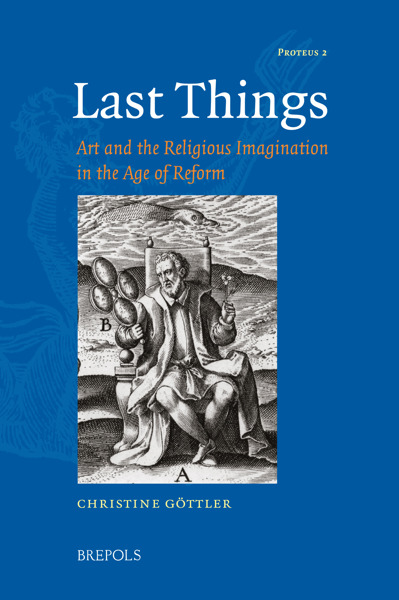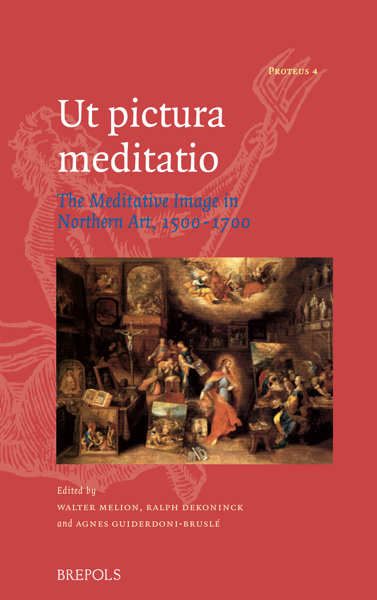
Medievalism and Political Rhetoric in Humanist Historiography from the Low Countries (1515-1609)
Coen Maas
- Pages: xix + 541 p.
- Size:156 x 234 mm
- Illustrations:25 b/w
- Language(s):English
- Publication Year:2018
- € 140,00 EXCL. VAT RETAIL PRICE
- ISBN: 978-2-503-55711-3
- Hardback
- Available
Through an in-depth analysis of humanist historiography from the Low Countries, this book demonstrates the crucial importance of the Middle Ages for a political rhetoric in which the self-presentation of the historian and the definition of their homeland played a key role.
“The result is a valuable book (…)” (Craig Kallendorf, in Neo Latin News, 76/3-4, 2018, p. 220)
“(…) the book’s extraordinary intellectual generosity, which is very much to be praised.” (Carol Symes, in Renaissance Quarterly, LXXII/4, 2019, p. 1434)
“Insgesamt bietet M. mit seiner Studie einen klar fokussierten und zugleich vielseitig ausgerichteten Beitrag zur Entwicklung der Historiographie in den frühneuzeitlichen Niederlanden, der in vielerlei Hinsicht zur Relativierung liebgewordener Ansichten zwingt. Dass er dabei die Abhängigkeit der historiographischen Praxis vom lebensweltlichen Umfeld unterstreicht – und zugleich die Produktion von Wahrheit als Resultat diskursiver Praktiken aufzeigt – macht den Band auch für Historikerinnen und Historiker zu einem äußerst lesenswerten Beitrag.” (Klaus Oschema, in: Mittellateinisches Jahrbuch, Band 55, 1 (2020), p. 173)
“The volume is ultimately a comprehensive and valuable contribution, with gems to be found for scholars in fields including Low Country political history, early modern medievalism, and early modern intellectual history more generally." (Christian Thorsten Callisen, in Parergon, 38/1, 2021, p. 241)
Considering that humanist scholars often referred to the Middle Ages as a period of darkness and ignorance, it is surprising that early modern historians were, in fact, highly interested in this period. Focusing on Latin works by (humanist) historians from Holland and Brabant, the central argument of this book is that this choice of medieval subject matter and the way in which these historians described their provinces’ medieval past served a highly political agenda.
The case studies in this book bring forward some key characteristics of early modern medievalism, a subject that has recently attracted a lot of scholarly attention. These chapters show how concepts of the medieval were used as rhetorical tools, how and why medieval forms and ideals were appropriated, and how the classical heritage was invoked in the representation of the medieval.
In focusing on political rhetoric, the historians’ position in the political arena is shown to be a catalyst for new developments in the study of the past rather than a menace to objective historiography. They made medieval history serve life by (re)discovering in the past the desire for financial control, the rulers’ majestic power, the legal right to govern oneself, or the resistance against tyrannical oppression that had always been constitutive of their communities’ selves.
Acknowledgements
List of Abbreviations
List of Illustrations
1. Introduction: Medievalist Historiography and Political Rhetoric
- 1.1 ‘Barbarous and Foul’? Humanists and the Middle Ages
- 1.2 Humanist Historiography and Political Rhetoric
- 1.3 Works of History as Rhetorical Texts
- 1.4 The Rhetorical Analysis of Narrative
- 1.5 The Persuasive Use of Intertextuality
- 1.6 Status quaestionis: Research on Early Modern Medievalisms
- 1.7 Definitions of the Middle Ages
- 1.8 Appropriation of Medieval Forms and Ideals
- 1.9 Medievalism and Classicism
- 1.10 The Setup of This Book
- 2.1 Genre Conventions and Rhetorical Analysis
- 2.2 Ars historica and Rules of Reading
- 2.3 Pleasantness as a Humanist Literary Standard: Elegant Style and Vivid Narrative
- 2.4 Emulation as a Means of Embellishment and a Marker of Literary Conventions
- 2.5 Orientation on the Present: The Usefulness of Historiography
- 2.6 Historical Truth as a Surety for Morality
- 2.7 Envisaging Authors and Readers: The Situation of Narrative Transmission
- 3.1 Dynastic Structures: Book Division, Periodization, and Genealogy
- 3.2 A Prototypical Prince: King William II
- 3.3 Batavian Leitmotivs: Liberty, Monarchy, Nobility
- 3.4 Learned Protagonists: Reading History in the Historia Hollandie
- 3.5 Libertas as an Ideological Inflation of Tax Minimization
- 3.6 The Blame for Loss of Liberty: Counts of Holland and Roman Tyranny
- 3.7 Driving Home the Message: The Contemporary Crisis in Liberty
- 3.8 Postscript: A Second Redaction of the Historia Hollandiae
- 4.1 From Chronicle to Compendium: Brevity, Selection, Organization
- 4.2 Existing Narrative Reshaped: A Comparative Approach
- 4.3 ‘Some Things Are Omitted and Passed Over’: Brevity and Vividness
- 4.4 ‘History Exalts the Good’: The Praise of Princes
- 4.5 ‘Look Upon Them Like in a Mirror’: The Meaning of Medieval History
- 4.6 ‘I Observe’: Historical Criticism and the Persona of the Historian
- 4.7 Political Education in the Habsburg Netherlands
- 4.8 ‘The Rest of Them Hates Literature’: Heated Debates in Louvain
- 5.1 Divaeus as a Civil Servant, Humanist, and Historian
- 5.2 Medieval and Humanist Roots: Chorography, Chronicles, and Meyerus’s Oeuvre
- 5.3 The Theoretical Background: François Baudouin and ‘The Idea of Perfect History’
- 5.4 The Antiquitates and Divaeus’s Political Definition of Brabant
- 5.5 Arousal and Settlement of Political Controversy in the Commentarii
- 5.6 Documentary Evidence and Constitutionalism in the Commentarii
- 5.7 Aftermath: Divaeus and the Dutch Revolt
- 6.1 Self-Justification and Humanist Stereotypes about the Middle Ages
- 6.2 Changing the Rules of the Game: Poetics and Historiographical Theory
- 6.3 The Scholar’s Weapons and the Liberation of History
- 6.4 An Ovidian Narrative
- 6.5 Political Rhetoric in the Verse Annales
- 7.1 Rules of Reading: Argumentation and Documentation
- 7.2 Prelude to the Prequel: Batavian History
- 7.3 The Language of Resistance: Political Vocabulary
- 7.4 Classical Models: Sallustianism and Tacitism?
- 7.5 Junior’s Biographical Sketches
- 7.6 Political Rhetoric in the Prose Annales as Compared to the Poetic Annales
- 8.1 The Development of the Dutch Vernacular in the Sixteenth Century
- 8.2 Intellectual Orientation: Disposition, Narrative, Style, and Vocabulary
- 8.3 The Role of Canons in Latin and Vernacular Historiography
- 8.4 Authorship and Authority
- 8.5 Social Differentiation and Audience
- 8.6 Political Rhetoric in Latin and Vernacular Historiography
Appendix A: Manuscripts of Snoy’s Historia Hollandie
Appendix B: Concordance Table for the Versions of Snoy’s Historia Hollandie
Appendix C: Principal Sources for Some Reigns Described in Barlandus’s Cronica Brabantiae ducum
Appendix D: Inclusion of Events from the Rule of John II in the Versions of Divaeus’s Commentarii
Appendix E: Transcription of Some Entries from the Rule of John II in the Versions of Divaeus’s Commentarii
Appendix F: Evocations of Roman Heroes in Dousa’s Account of the Life of Dirk IV
Bibliography
Index of Proper Names and Place Names
